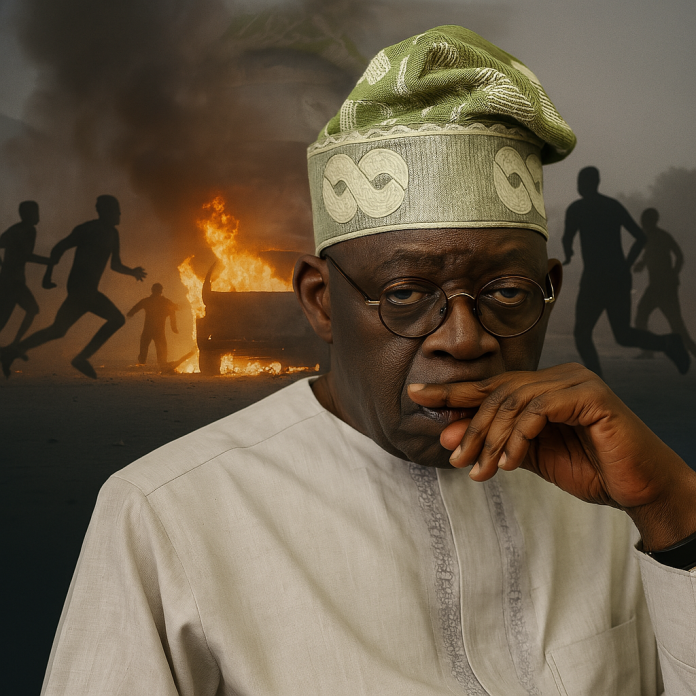By Bukar Mohammed
On March 27, a troubling event unfolded, raising serious concerns across Nigeria. Sixteen northern men, described as “hunters,” were intercepted and killed on their way to Kano. This incident follows a recent attack in Benin, where homes were targeted. These unsettling developments prompt critical questions: Why now? Why target a highway? Why attack homes in Benin? And why is this happening at a time when the influx of northerners into the region is notably high?
A Calculated Attempt at Destabilization?
Nigeria is currently at a fragile crossroads. Economic hardship, political tension, and escalating insecurity have left many Nigerians on edge. The timing and location of this attack—Kano, a state with a volatile history—raises concerns about whether this was a random act of violence or part of a broader strategy aimed at disrupting stability.
While it’s important not to jump to conclusions, the circumstances surrounding these attacks warrant a deeper investigation. The key question remains: Who stands to benefit from this unrest?
Uncovering the Motives
Authorities must conduct a transparent and thorough investigation into the motives behind these attacks. Understanding whether these incidents are isolated or part of a coordinated effort is crucial to preventing further escalation. The risk of violent retaliation or mass unrest is real, especially in a region where emotions can easily flare.
At a time when Nigerians are already grappling with economic and security challenges, incidents like these can quickly trigger widespread instability. It is, therefore, imperative for security agencies to act swiftly and decisively, ensuring that those responsible are brought to justice.
The Role of Government in Ensuring Stability
Speculation is rife about whether elements within the government could be involved—directly or indirectly—in these events. Some suggest that turmoil in Kano could create a pretext for federal intervention, potentially paving the way for the imposition of a sole administrator in the state. While this remains a theory, it is not without precedent. History shows that crises have been used in the past to justify political realignments.
The government’s response to this crisis will be telling. If handled with transparency and fairness, it will reassure Nigerians that national security is the priority. If not, it could deepen suspicions and further fuel tensions.
Why Governor Kabir Yusuf Must Act
For Governor Kabir Yusuf, this could be a defining moment in his leadership. Kano is both a political and economic powerhouse, and any attempt to destabilize it could have far-reaching consequences. If violence spreads, external intervention in the state’s affairs could become a real possibility.
To prevent this, the governor must take decisive action by ensuring that investigations are thorough, security is reinforced, and political actors do not exploit the crisis for personal or partisan gain. His ability to manage this situation will not only determine Kano’s stability but also safeguard the integrity of his administration.
Kwankwaso’s Political Strategy and Its Implications
Senator Rabiu Musa Kwankwaso must also reassess his political strategy. His repeated presidential bids have historically divided northern votes, often paving the way for southern candidates to secure victory. While his ambition is legitimate, it has created challenges for the North’s political influence on the national stage.
This recent crisis in Kano should serve as a reminder of the high political stakes involved. Whether intentional or not, Kwankwaso’s alignment with the current administration has created vulnerabilities that political opponents may seek to exploit. If he hopes to maintain his influence in Kano and the North, he must work toward a more strategic and unified political direction.
The Bigger Picture: A Test for National Stability
President Bola Ahmed Tinubu has navigated multiple political challenges since taking office, but the country remains on edge. The near-crisis in Kano highlights how quickly instability can emerge and underscores the need for responsible leadership at both federal and state levels.
Nigerians must demand accountability. The government’s handling of this case will determine whether it strengthens national unity or deepens existing divides. In these uncertain times, measured leadership, transparency, and fairness are essential.
The question remains: Was this another close call for Tinubu or a sign that Nigeria’s political landscape is shifting in an unpredictable direction?
BUKAR Mohammed is a political analyst from Kano.
Share your story or advertise with us: Whatsapp: +2347068606071 Email: info@newspotng.com

















